第56章 THE SHEEP(1)
The enemy had declared "no trumps." Rupert played out his ace and king of clubs and cleared the adversary of that suit; then the Sheep, whom the Fates had inflicted on him for a partner, took the third round with the queen of clubs, and, having no other club to lead back, opened another suit. The enemy won the remainder of the tricks--and the rubber.
"I had four more clubs to play; we only wanted the odd trick to win the rubber," said Rupert.
"But I hadn't another club to lead you," exclaimed the Sheep, with his ready, defensive smile.
"It didn't occur to you to throw your queen away on my king and leave me with the command of the suit," said Rupert, with polite bitterness.
"I suppose I ought to have--I wasn't certain what to do. I'm awfully sorry," said the Sheep.
Being awfully and uselessly sorry formed a large part of his occupation in life. If a similar situation had arisen in a subsequent hand he would have blundered just as certainly, and he would have been just as irritatingly apologetic.
Rupert stared gloomily across at him as he sat smiling and fumbling with his cards. Many men who have good brains for business do not possess the rudiments of a card-brain, and Rupert would not have judged and condemned his prospective brother-in-law on the evidence of his bridge play alone. The tragic part of it was that he smiled and fumbled through life just as fatuously and apologetically as he did at the card-table. And behind the defensive smile and the well-worn expressions of regret there shone a scarcely believable but quite obvious self-satisfaction. Every sheep of the pasture probably imagines that in an emergency it could become terrible as an army with banners--one has only to watch how they stamp their feet and stiffen their necks when a minor object of suspicion comes into view and behaves meekly. And probably the majority of human sheep see themselves in imagination taking great parts in the world's more impressive dramas, forming swift, unerring decisions in moments of crisis, cowing mutinies, allaying panics, brave, strong, simple, but, in spite of their natural modesty, always slightly spectacular.
"Why in the name of all that is unnecessary and perverse should Kathleen choose this man for her future husband?" was the question that Rupert asked himself ruefully. There was young Malcolm Athling, as nice-looking, decent, level-headed a fellow as any one could wish to meet, obviously her very devoted admirer, and yet she must throw herself away on this pale-eyed, weak-mouthed embodiment of self-approving ineptitude. If it had been merely Kathleen's own affair Rupert would have shrugged his shoulders and philosophically hoped that she might make the best of an undeniably bad bargain.
But Rupert had no heir; his own boy lay underground somewhere on the Indian frontier, in goodly company. And the property would pass in due curse to Kathleen and Kathleen's husband. The Sheep would live there in the beloved old home, rearing up other little Sheep, fatuous and rabbit-faced and self-satisfied like himself, to dwell in the land and possess it. It was not a soothing prospect.
Towards dusk on the afternoon following the bridge experience Rupert and the Sheep made their way homeward after a day's mixed shooting.
The Sheep's cartridge bag was nearly empty, but his game bag showed no signs of over-crowding. The birds he had shot at had seemed for the most part as impervious to death or damage as the hero of a melodrama. And for each failure to drop his bird he had some explanation or apology ready on his lips. Now he was striding along in front of his host, chattering happily over his shoulder, but obviously on the look-out for some belated rabbit or woodpigeon that might haply be secured as an eleventh-hour addition to his bag. As they passed the edge of a small copse a large bird rose from the ground and flew slowly towards the trees, offering an easy shot to the oncoming sportsmen. The Sheep banged forth with both barrels, and gave an exultant cry.
"Horray! I've shot a thundering big hawk!"
"To be exact, you've shot a honey-buzzard. That is the hen bird of one of the few pairs of honey-buzzards breeding in the United Kingdom. We've kept them under the strictest preservation for the last four years; every game-keeper and village gun loafer for twenty miles round has been warned and bribed and threatened to respect their sanctity, and egg-snatching agents have been carefully guarded against during the breeding season. Hundreds of lovers of rare birds have delighted in seeing their snap-shotted portraits in Country Life, and now you've reduced the hen bird to a lump of broken feathers."
Rupert spoke quietly and evenly, but for a moment or two a gleam of positive hatred shone in his eyes.
"I say, I'm so sorry," said the Sheep, with his apologetic smile.
"Of course I remember hearing about the buzzards, but somehow I didn't connect this bird with them. And it was such an east shot--"
"Yes," said Rupert; "that was the trouble."
Kathleen found him in the gun-room smoothing out the feathers of the dead bird. She had already been told of the catastrophe.
"What a horrid misfortune," she said sympathetically.
"It was my dear Robbie who first discovered them, the last time he was home on leave. Don't you remember how excited he was about them? Let's go and have some tea."